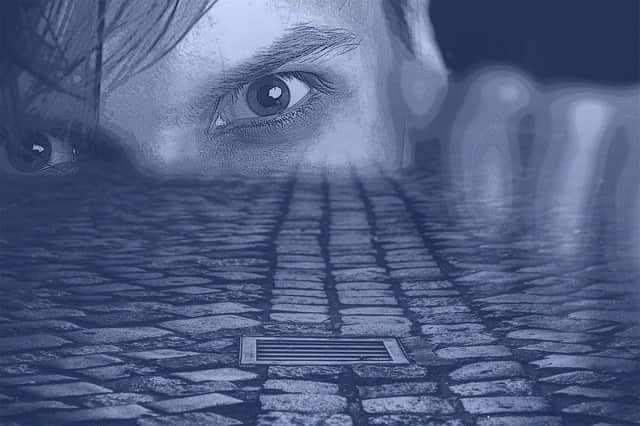Rape Crisis: failure to punish flashing and voyeurism offenders emboldens them to commit more violent crimes


Perpetrators of flashing and other so-called ‘low level’ sexual offences are being emboldened to commit more violent crimes by the lack of repercussions they face, a leading rape charity has warned.
Rape Crisis was responding to findings by NationalWorld that thousands of exposure and voyeurism offences went unpunished over one six-month period in England and Wales.
Advertisement
Hide AdAdvertisement
Hide AdNationalWorld has been investigating the scale of violence against women and girls in the wake of Sarah Everard’s murder at the hands of a serving police officer one year ago, on 3 March 2021.
Our analysis reveals that between April and September last year, police forces in England and Wales closed 5,996 exposure and voyeurism offence investigations, bringing charges in only 609 of them (10.2%).
That was significantly lower than the charge rate in the same period a year before, when it was 13.6% – although it was higher than the charge rate for sexual offences as a whole (7.2%).
Data for Scotland and Northern Ireland – where crime and justice matters are devolved – is not available for the same period.
Advertisement
Hide AdAdvertisement
Hide AdVoyeurism involves offenders spying on or recording victims while they are “doing a private act” such as undressing or having sex. It also now includes ‘upskirting’, following a law change in 2019.


Exposure offences are where a sexual offender reveals their genitals to a victim without their consent.
Wayne Couzens, the Metropolitan Police officer who raped and murdered Ms Everard, 33, was acused of flashing another woman the month before her abduction, with Met officers handed CCTV of the incident just three days before the killing, the Daily Mail reports.
The Met Police is being investigated by the Independent Office for Police Conduct (IOPC) over how it handled the reports, as is Kent Police, which also received reports of indecent exposure by Couzens in 2015.
Advertisement
Hide AdAdvertisement
Hide AdRadio DJ Emma B has also since said she believes Couzens flashed her in 2008, but said police “laughed in her face” when she tried to report it.
Jayne Butler, chief executive officer of Rape Crisis, said indecent exposure is often seen as a “low level” form of sexual violence, despite being a serious sexual offence that “can be really upsetting and scary” for victims and seriously impact their sense of safety.
“We also know that perpetrators that commit exposure often go on to commit further sexual offences, such as rape,” she continued.
“It is often the start of a pattern of sexually violent behaviour which can increase in intensity and severity.
Advertisement
Hide AdAdvertisement
Hide Ad“There is a danger that perpetrators become emboldened to commit further abuse through a lack of repercussions or consequences.
“It is imperative that the police and Crown Prosecution Service (CPS) treat this crime seriously and recognise how traumatising it can be for survivors.”
Both the CPS and police play a part in bringing charges against suspects.
NationalWorld put Ms Butler’s comments to the CPS. In a statement, a spokesperson said prosecutors are determined to help more victims of rape and sexual violence seek justice, but did not address specific concerns about exposure offences.
Advertisement
Hide AdAdvertisement
Hide Ad“We are working with police from the outset to build stronger cases which pass efficiently through the system,” the spokesperson said.
“We are also working to better support victims through the legal process and recruit more staff into our specialist rape units.”
The National Police Chiefs’ Council said a new police framework was launched last December which sets out action required from every force to make women and girls safer.
“In this framework, there are three pillars looking at trust and confidence, relentless pursuit of perpetrators and creating safer spaces for women and girls,” a spokesperson said.
Advertisement
Hide AdAdvertisement
Hide Ad“Priority action is to challenge sexism and misogyny in policing and to turn the tables so violent men feel under threat from police action, not women and girls going about their lives.
"We are committed to transforming the police approach to rape and serious sexual offences and ensuring that victims get the service, support and outcomes they deserve throughout the criminal justice process.”
Uncovered Podcast: you can listen to a new episode about women’s safety below, and subscribe on any platform, including Apple and Spotify.
Loading....
A message from the editor:
Thank you for reading. NationalWorld is a new national news brand, produced by a team of journalists, editors, video producers and designers who live and work across the UK. Find out more about who’s who in the team, and our editorial values. We want to start a community among our readers, so please follow us on Facebook, Twitter and Instagram, and keep the conversation going. You can also sign up to our newsletters and get a curated selection of our best reads to your inbox every day.
